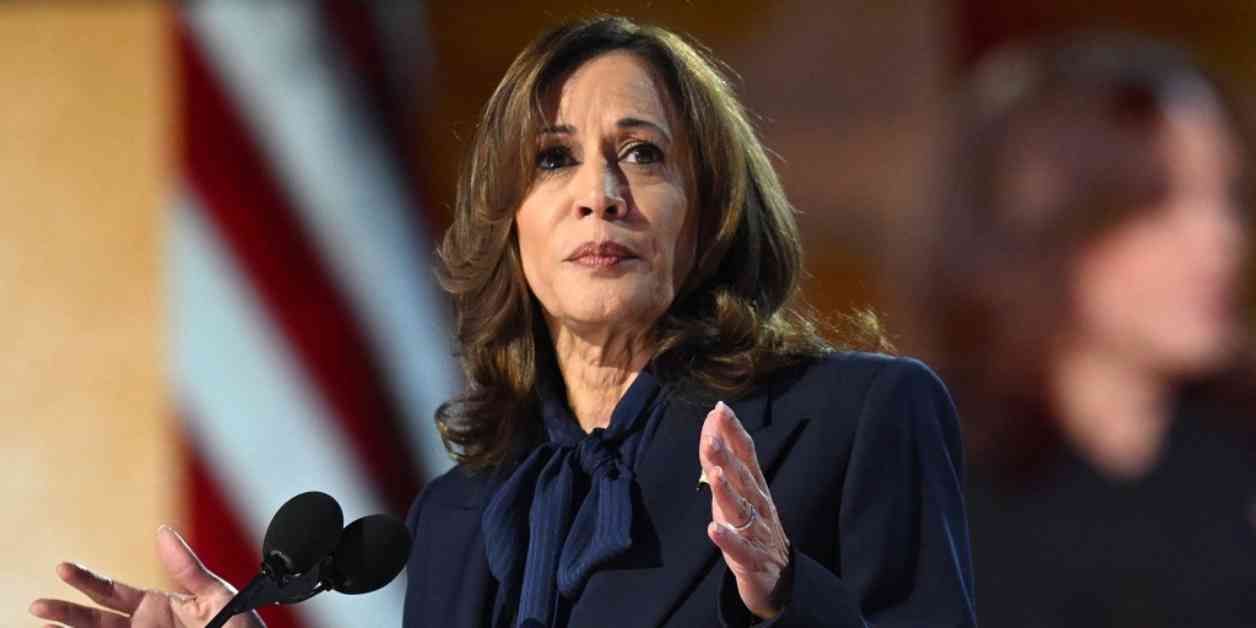Vice President Kamala Harris has recently endorsed a Biden administration proposal that has sparked controversy among conservative pundits and Trump supporters. The plan involves taxing unrealized stock gains for individuals with a net worth of $100 million or more, expanding the current system that only taxes profits from stock investments once they are sold. This new proposal would impose a levy on stock holdings as their value increases, regardless of whether they are cashed in or not.
The idea of taxing unrealized gains has drawn criticism from various quarters, with some labeling it as socialist or even communist. However, proponents argue that the current lack of taxation on capital gains is seen as a loophole that benefits the wealthy disproportionately. By most estimates, the top 1% of earners have around 40% of their wealth tied up in unrealized capital gains. This has led to strategies such as “buy, borrow, die,” where assets are bought and borrowed against to avoid taxes, ultimately allowing the assets to be passed on to heirs tax-free.
While the tax on unrealized gains would only apply to a small percentage of the population, approximately 10,660 individuals in the U.S., the opposition remains strong. Critics argue that it raises questions about individual property rights, financial privacy, and due process. The plan would only target “tradable” assets, excluding real estate or shares in private startups. Despite these limitations, some conservatives have seized on the proposal to paint Harris as anti-business.
Former presidential candidate and venture capitalist Vivek Ramaswamy has been vocal in his opposition to the plan, highlighting the potential impact on the wealthy. Elon Musk, one of the world’s richest individuals, also weighed in on the debate, reposting Ramaswamy’s criticisms. Concerns have been raised about the fluctuating nature of stock values and the potential for individuals to pay taxes on unrealized gains that may never materialize if the market takes a downturn.
In response to these concerns, Biden’s proposal includes a provision to assess the tax over five years to account for fluctuations in asset values. Advocates argue that this approach aligns with the principle of fairness, as average American workers are expected to pay taxes on their earnings each year. The tax on unrealized gains is seen as a way to address income and wealth disparities, particularly among high-wealth taxpayers.
Despite the potential benefits of the proposal, it is likely to face challenges in Congress. Biden’s previous attempts to pass similar measures failed even when his party held slim majorities in both the House and Senate. The proposal has been framed as a “billionaire minimum income tax” with a proposed rate of 25%, estimated to raise up to $503 billion over 10 years. While this amount is significantly less than the deficit projected under Trump’s budget plan, proponents argue that it is both financially prudent and morally necessary.
In light of the ongoing debate over taxing unrealized gains, it is essential to consider the broader implications of such a policy. While critics raise concerns about individual rights and economic impact, proponents emphasize the need for a fairer tax system that addresses wealth disparities. The ultimate fate of the proposal remains uncertain, but it has ignited a crucial conversation about taxation, wealth distribution, and economic equity in the United States.
Challenges and Controversies
The proposal to tax unrealized stock gains for individuals with a net worth of $100 million or more has faced significant challenges and controversies. Conservative pundits and Trump supporters have decried the plan as socialist or communist, arguing that it infringes on individual property rights and financial privacy. Critics have raised concerns about the potential impact on businesses and the economy, with some viewing the proposal as a threat to wealth accumulation and investment.
Impact on Wealth Disparities
Proponents of the tax on unrealized gains argue that it is necessary to address income and wealth disparities in the U.S. The current lack of taxation on capital gains is seen as a loophole that benefits the wealthy disproportionately, allowing them to avoid paying taxes on significant portions of their wealth. By targeting unrealized gains, the proposal seeks to create a fairer tax system that ensures high-wealth individuals contribute their fair share to the government’s revenue.
Political and Economic Ramifications
The debate over taxing unrealized stock gains has significant political and economic ramifications. While the proposal is framed as a way to address income inequality and raise revenue, it has faced opposition from various quarters. The challenges of passing such a measure through Congress, combined with concerns about its impact on businesses and the economy, highlight the complexity of tax policy in a polarized political climate. As the discussion continues, it is essential to consider the long-term implications of taxing unrealized gains and its potential effects on wealth distribution and economic stability.



























